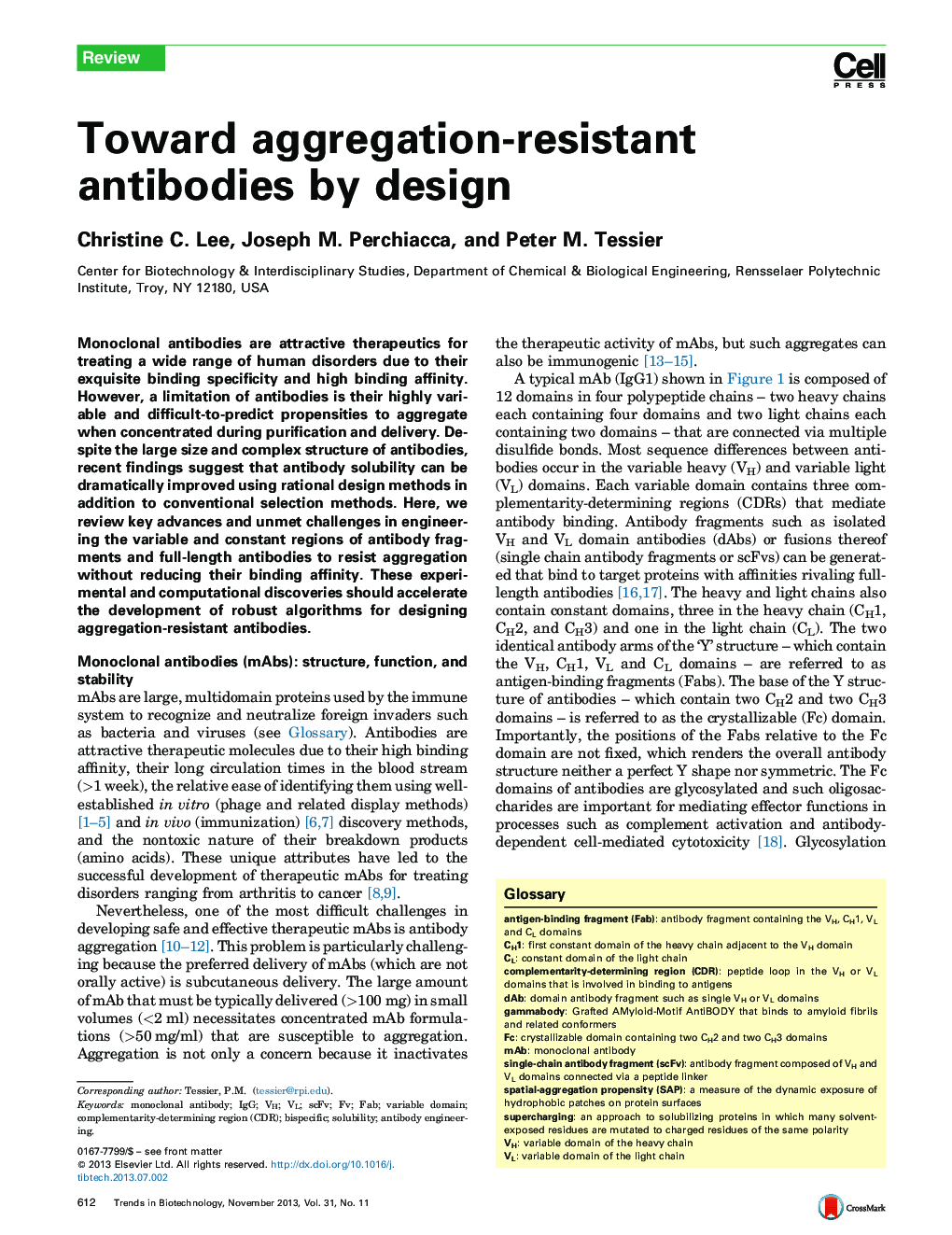| Article ID | Journal | Published Year | Pages | File Type |
|---|---|---|---|---|
| 36870 | Trends in Biotechnology | 2013 | 9 Pages |
•Therapeutic antibodies possess highly variable propensities to aggregate.•Antibody CDRs, frameworks, and domain interfaces strongly influence solubility.•Computational methods are emerging for designing aggregation-resistant antibodies.•These predictive methods are yielding antibodies with high solubility and affinity.
Monoclonal antibodies are attractive therapeutics for treating a wide range of human disorders due to their exquisite binding specificity and high binding affinity. However, a limitation of antibodies is their highly variable and difficult-to-predict propensities to aggregate when concentrated during purification and delivery. Despite the large size and complex structure of antibodies, recent findings suggest that antibody solubility can be dramatically improved using rational design methods in addition to conventional selection methods. Here, we review key advances and unmet challenges in engineering the variable and constant regions of antibody fragments and full-length antibodies to resist aggregation without reducing their binding affinity. These experimental and computational discoveries should accelerate the development of robust algorithms for designing aggregation-resistant antibodies.
